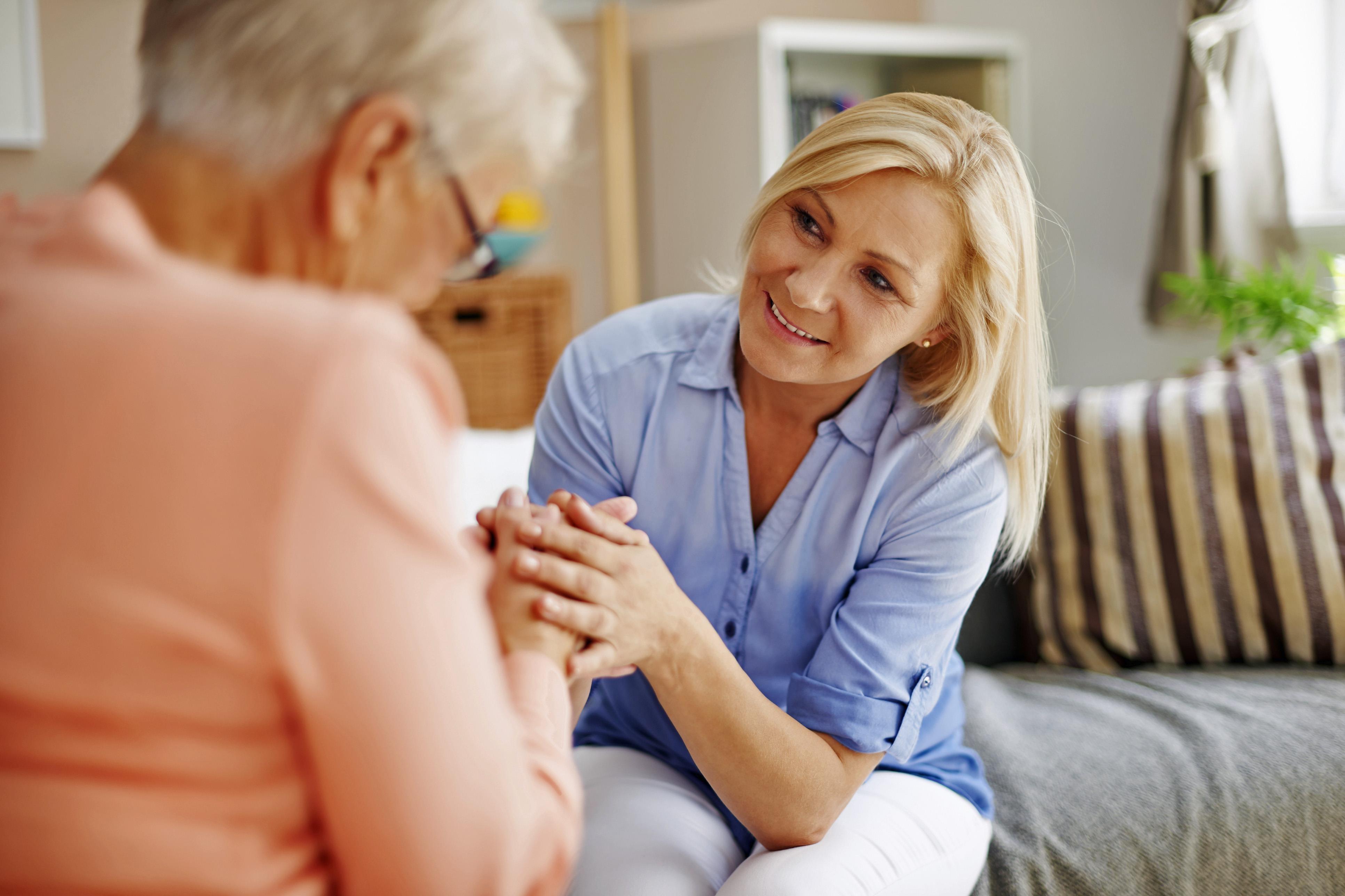
PROVIDING COMFORT AND CALM TO THOSE WITH DEMENTIA
Without regular family or caregiver contact, Seniors with dementia are likely to feel scared, lonely, agitated, confused, and angry because they don’t truly understand or remember what’s causing major changes to their lifestyle. Both their condition and the COVID pandemic are to blame
You may not know how to comfort and calm a loved one with dementia, especially when you live far away or you both are apart and self-quarantining due to the pandemic.
The most important thing is to stay in regular contact, even if it is just by telephone. Remember most Seniors are not tech savvy. Set up a regular schedule for when you’ll call them and stick to it; it’s important they can look forward to it and count on it regularly. Here are some helpful hints:
- Prepare some pleasant topics in advance for discussion. This can help keep them in a positive frame of mind. Think about what they usually enjoy talking about? What tends to capture their attention? What usually makes them smile or laugh?
- To make it easier for them to communicate, especially when they can’t see you, use short, direct sentences and pause to allow them plenty of time to process what they’re hearing and be able to respond.
- Keep in mind that the purpose of the call is to help them feel connected and secure. The content of the discussion is less important.
- Make sure you are relaxed and focused when speaking with them. The tone and volume of your voice is important. For example, if you are feeling stressed, that will come across and subconsciously affect them as well and make them more likely to feel stressed or agitated.
- Limit the information you share. Stay away from anything scary and confusing for someone with Alzheimer’s or dementia. Extended explanations are overwhelming because they may not be able to process and understand the information.
- If you have to talk about the Coronavirus, do it in a way they can understand and that helps them feel calm and secure. Keep the conversation very simple, stay calm, and be reassuring. Then, try to distract them by talking about something pleasant.
- Ask yourself: What can they understand? How will they respond? Will explaining cause more anxiety than comfort? The more advanced their dementia, the less you may want to share.
- If they ask repeatedly why you don’t visit, insist they want to go home, or make angry accusations, distract and defuse the situation to reduce their distress during the call with these techniques:
- If possible, use video calling, it’s often more comforting when they can see your face;
- Plan the call in advance;
- Get a good idea of what’s been upsetting your Senior loved one;
- Before the call, make a list of the issues that are likely to come up and plan your answers.
- If you need to redirect their attention, do it by asking a question about a topic that interests them or by sharing pleasant news they’ll be interested in about family members, grandchildren, or favorite memories, foods, and hobbies.
- Plan ahead for the next call. Remember that everyone is different, so the techniques and responses may not always work right away or in that particular moment. Make some notes on what went well, what didn’t work, and any triggers to avoid for the next call.
- Take it to the next level. Send letters or care packages to help brighten your loved one’s mood and remind them that you’re thinking of them and care about them. Include photos if you can.
- When the pandemic issues become more manageable, see if you can arrange for an outdoor visit with your loved one, or have them sit at a window so you can wave to them while talking to them on your cell phone.
Contact Us: Social distancing means staying home and physically apart from those you love to prevent the spread of the virus. Unfortunately, it can lead to severe loneliness, fear and anxiety especially for those with dementia. Your loved one might benefit from home care or companion care during the pandemic. Our caregivers are trained in the proper protocols to prevent transmission of the Coronavirus, and can help ease the stress and loneliness that comes from social distancing. We will shop, cook, manage meds and do the necessary disinfecting of high touch surfaces needed in the home. In addition, our caregivers can help prevent falls to keep your loved one out of the hospital, which is a high-risk environment at this time. If you need help at home or someone to check on a loved one, help is just a phone call away at 561-264-0866.
